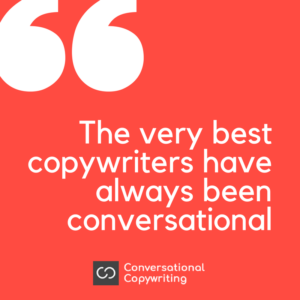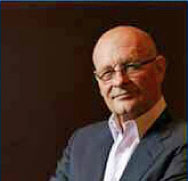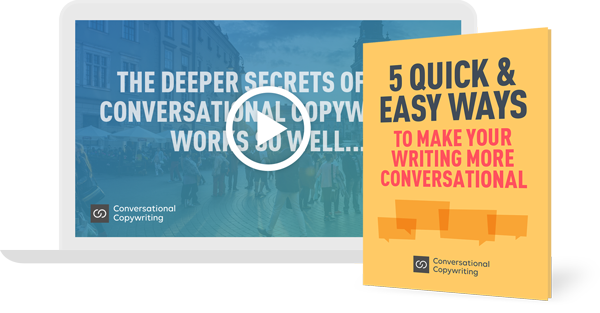
This is a Guest Post by Drayton Bird. If you know who Drayton is, dive in. If you haven’t yet had the pleasure, scroll to the end of this post right now and read the “About Drayton Bird” part. Then come back here and start reading.
You may consider that first question – about moving your lips – insulting. You probably think I’m referring to folks who aren’t too smart.
If you’re thin-skinned you may even think it’s a crude way of implying YOU’RE not the brightest bulb in the chandelier.
But if you write copy – or content, as people have begun calling it – it really matters.
That’s because when we read – whether we are highly educated or totally uneducated – we “play” the words back to ourselves in our minds. And so do our readers.
What does this imply for your writing and your profits?
Well, here’s what a great advertising man – Fairfax Cone, co-founder of giant agency Foote, Cone & Belding – used to say when a writer showed him copy he didn’t care for:
“Would you say that to someone you know?”
And one of the great comic novelists of the 20th century, Evelyn Waugh, said:
“A good letter is like a conversation”
So let me ask you:
Is your writing conversational?
Or is it full of stuffy corporate jargon?
Formal and pretentious, striving to be literary?
Does it get people to act – or bore them to tears?
If your copy is like that – if it isn’t conversational – it won’t be read. And it won’t sell.
As Winston Churchill, whose persuasive powers moved an entire nation to beat Hitler said:
“Use simple words everyone knows, then everyone will understand.”
And as my old boss David Ogilvy noted:
“You cannot BORE people into buying.”
Well: are they buying?
Or are you boring them?
It costs no more to run copy that makes them buy – conversational copy – than guff that puts them to sleep.
How do you do it? Nick Usborne knows.
Here’s some advice from another great writer.
Orwell’s six rules for better writing were aimed at politicians.
But if you communicate to anyone, for any reason, in writing or not, they are priceless.
Some of you asked to see them, so here goes.
They were part of an essay written in 1946;
- Never use a metaphor, simile or other figure of speech which you are used to seeing in print.
- Never use a long word where a short one will do.
- If it is possible to cut a word out, always cut it out.
- Never use the passive where you can use the active.
- Never use a foreign phrase, a scientific word or a jargon word if you can think of an everyday English equivalent.
- Break any of these rules sooner than say anything barbarous.
The essay was called “Politics and the English Language”. It drew attention to the guff that politicians spoke.
This is as bad today as then. Maybe worse.
I think it is as common in business as in politics.
But here is something you might like to think about. It is about Trump.
No matter what you think of him he uses language no politician uses.
To many it came and comes as a welcome change.
I think the same applies in business.
Going back to politics, Churchill won a Nobel Prize for writing.
“Use short words everyone knows, then everyone will understand” he said.
What do you think?
 About Drayton Bird. Others have said it best…
About Drayton Bird. Others have said it best…
“Drayton Bird knows more about direct marketing than anyone in the world.” – David Ogilvy, founder of Ogilvy & Mather
“Drayton Bird is a wise and wily direct marketer. People all over the world have been lucky enough to learn from him.” – Sir Martin Sorrell, founder of WPP
“Witty and practical, but never boring. A great book to read and re-read and one that I wish I had read earlier in my career.” – Joe Sugarman, Copywriter, author, multi-millionaire pioneer of infomercials
“Your books are among my most valued possessions, and easily among the greatest ever written on advertising, right up there with those by Caples, Ogilvy, Schwab, Reeves and Hopkins.” – Gary Bencivenga, widely regarded as the world’s best direct marketing copywriter
Conversational Copywriting is the future of selling online. You can build your expertise now, or try catching up later. Find out about the course here…
